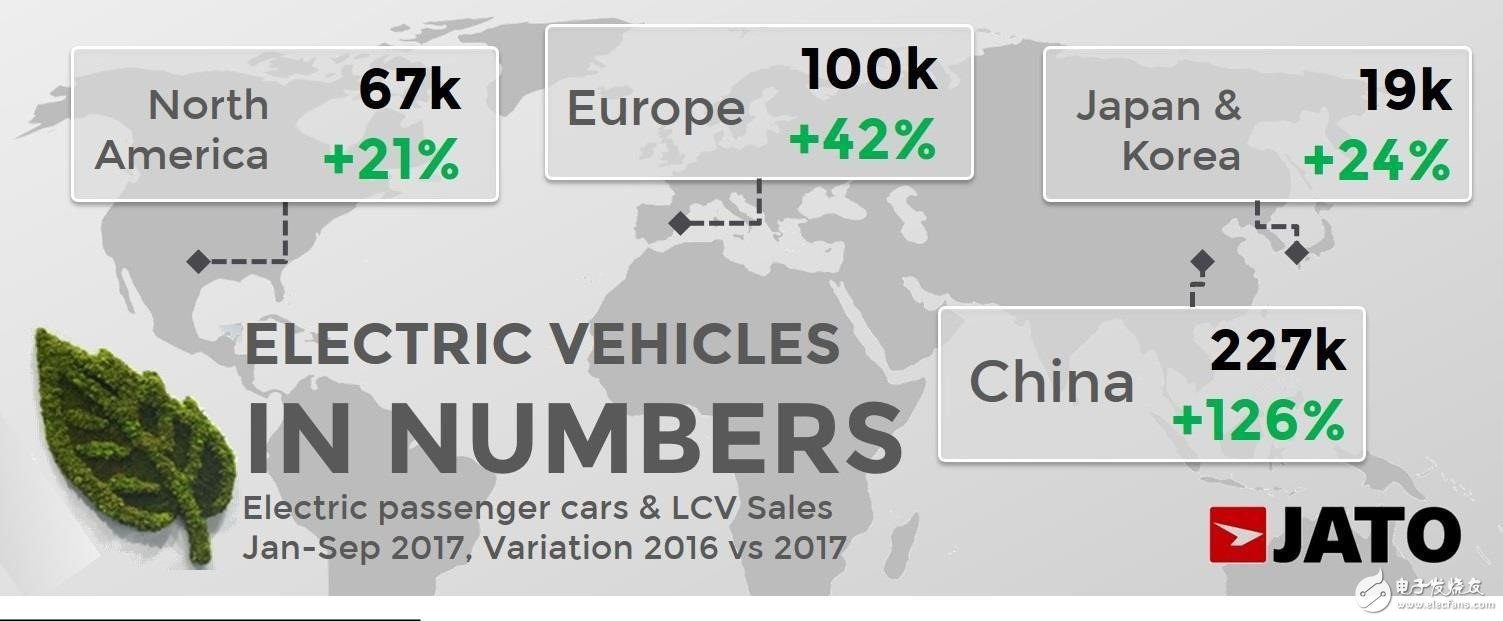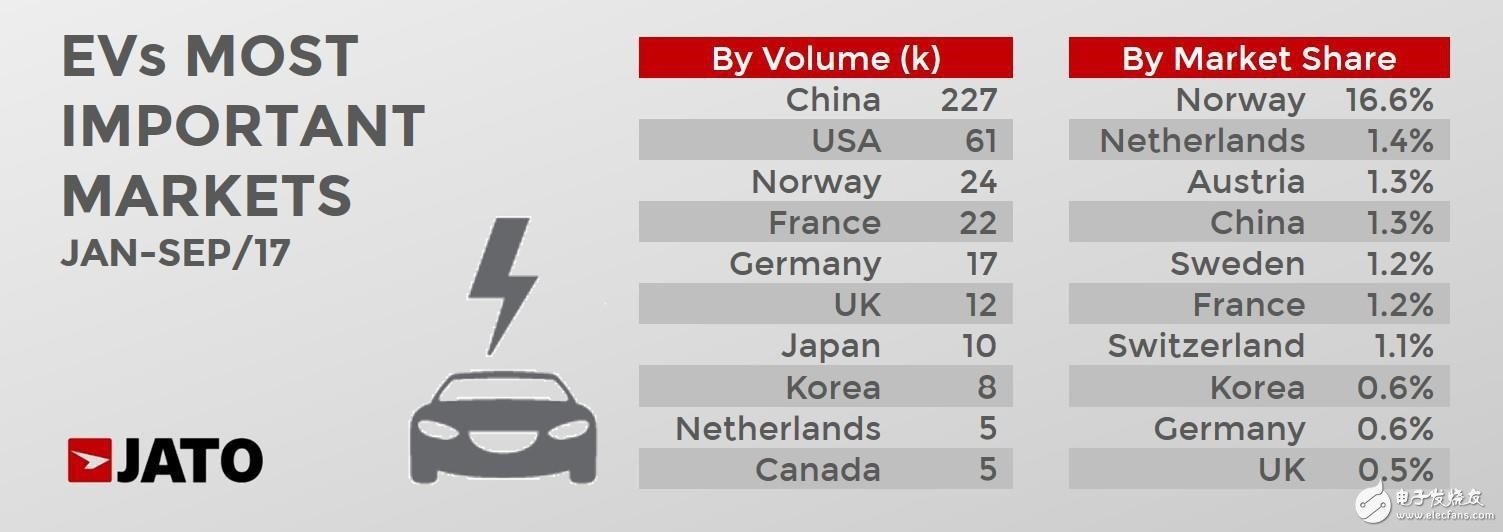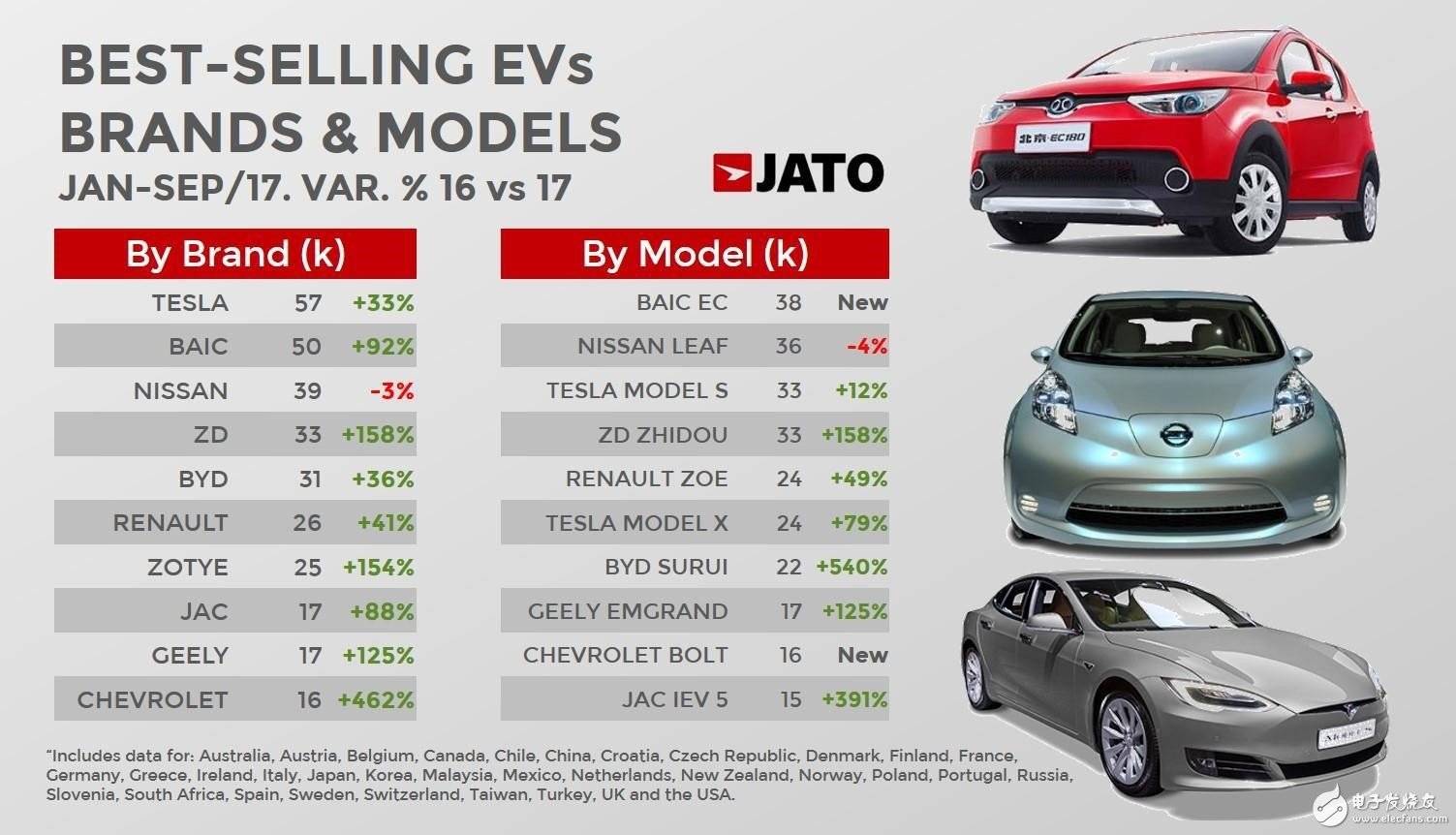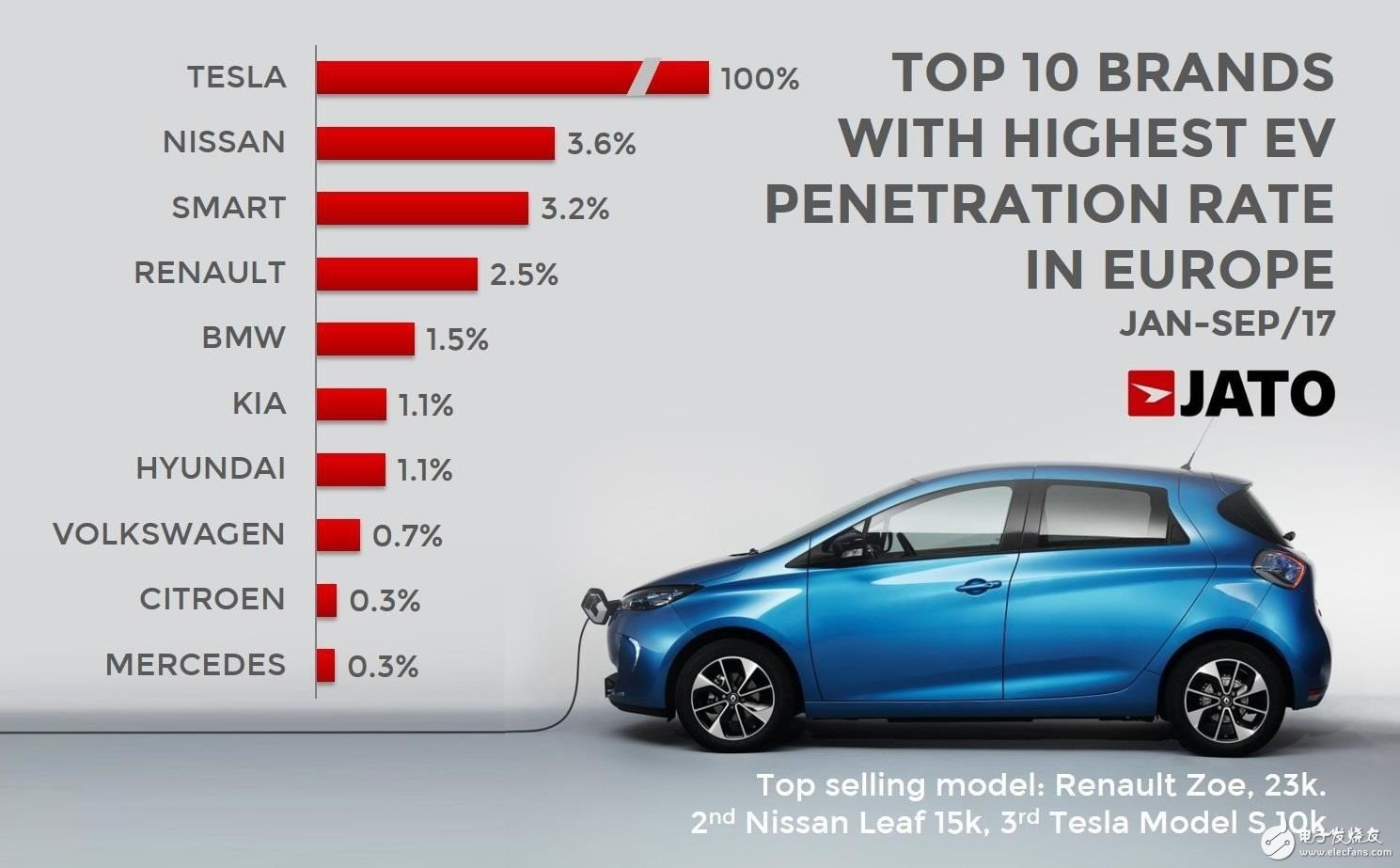The development of global electric vehicles, China's forces affect the world
With the gradual approach of new energy vehicles, the global electric vehicle market has undergone earth-shaking changes. According to the analysis of the global electric vehicle market in 2017, China will hold up a day in the field of electric vehicles.
According to the latest analysis published by automotive data and information provider JATO Dynamics, the adoption of global electric vehicles (EVs) has begun to accelerate as policymakers around the world have adopted regulations to reduce atmospheric pollutant emissions.

2017 is a turning point in the popularity of electric vehicles, and sales in key areas have increased significantly. These markets include Australia, Austria, Belgium, Canada, Chile, China, Croatia, Czech Republic, Denmark, Finland, France, Germany, Greece, Ireland, Italy, Japan, Korea, Malaysia, Mexico, Netherlands, New Zealand, Norway, Poland, Portugal. Russia, Slovenia, South Africa, Spain, Sweden, Switzerland, Taiwan, Turkey, the United Kingdom and the United States.
The automotive industry is at an important moment of development, and most auto brand manufacturers are beginning to place various electric vehicles at the heart of future plans. As countries and cities around the world strive to meet stringent emissions targets, they are also beginning to position electric vehicles as a way to achieve a cleaner future for the automotive industry. Manufacturers are constantly expanding their business, so consumers can choose a wider range.

China's expanding automotive market is critical to the future of electric vehicles. If electric vehicles become the mainstream technology, the impact of the Chinese market on global electric vehicle technology will not be underestimated. Chinese policymakers are trying to balance the relationship between sharp car demand and the country's serious pollution problems. The Chinese government has introduced policies to promote electric vehicles, such as car purchases in large cities, subsidies for domestic electric vehicles and plug-in hybrid vehicles (PHEVs). With the further development of the event, coupled with the new carbon credit project in which electric vehicles in China will take effect in 2019, electric vehicles will receive more credit points than plug-in hybrid vehicles, and global manufacturers will enter the Chinese market. . Accordingly, Chinese manufacturers have begun to give priority to the development and innovation of domestic electric vehicles.

At present, China has become the world's largest electric vehicle market, with sales reaching 227,000 in September. China quickly became the world's largest electric vehicle market, surpassing the more developed markets such as the US and Europe. In contrast, China has spent decades on traditional internal combustion engines.
In turn, China's focus on solving domestic emissions problems through electric vehicles means that it leads the way in technology development. China's auto industry's leadership in this field means that China now has the opportunity to conquer the global market and compete with its Western counterparts. This is very important because the internal combustion engines produced by Chinese manufacturers have struggled to compete with Western brands with more experience and tradition in the field. Therefore, as of September 2017, six of the top ten electric vehicle brands in the world's major automotive markets are located in China. If China's industry can produce electric vehicles that are attractive to consumers around the world and affordable, then China's auto industry's share of the global market will certainly continue to grow.
US market demand slowsContrary to the Chinese market, demand for electric vehicles in the US market has slowed since its peak in 2016. The United States has cheap gasoline, and consumers have a certain preference for large gasoline engines. This preference, combined with the current government position on electric vehicles, will reduce the tax credit introduced to stimulate sales of electric vehicles. The US population is also more dispersed than other densely populated markets, which means that mileage concerns remain. The popularity of private taxi application services in urban areas of the United States has also hampered the spread of electric vehicles in cities across the country. In such an environment, the adoption rate of electric vehicles in the United States is lower than in other major markets.
The current state of the US market has affected North America and is far behind Europe in terms of adoption of electric vehicles. In the first nine months of 2017, sales of electric vehicles in North America were 67,000 units, a slight increase of 21% from the same period last year.

In comparison, from January to September 2017, sales of electric vehicles in Europe were 100,000 units, a year-on-year increase of 42%. Major markets such as the UK, Germany and France all showed positive growth trends. The European Union recently introduced the "Global Light Vehicle Test Procedure (WLTP)", which is more representative of real-world driving than the previous "New European Driving Cycle (NEDC)" test and is a more important factor in driving emissions reductions. European countries such as the UK and France have proposed a ban on diesel bans in 2040, and many cities are taking action to reduce emissions in the region; Oxford, England has recently proposed a plan to build the world's first “zero-emission zone†.
Against this background, it is not surprising that eight of the top ten countries in the electric vehicle market penetration rate in January-September 2017 were European countries. EU and national regulation, coupled with local initiatives, is the driving force behind the success of the European electric vehicle industry. Norway is in the forefront of the world, with an electric vehicle market share of 16.6%, much higher than the second-ranking Netherlands, with an electric vehicle market share of 1.4%. The market share of electric vehicles in France, Germany and the United Kingdom is 1.2%, 0.6% and 0.5% respectively.
Despite the increasing use of electric vehicles by consumers in the region, the European automotive industry is based on internal combustion engines, which hinders the innovation of electric vehicles. As a result, European manufacturers have not yet produced enough electric vehicles, and consumer choice is limited. For example, Dongfeng Renault Automobile Co., Ltd. has only two all-electric models, of which only Zoe is a passenger car. Similarly, Volkswagen does not have a dedicated electric car, but instead provides an electric version of the existing model. However, with the decline in demand for diesel engines and the negative publicity of fuel types caused by the “diesel door†scandal, European brands that have already established have to promote electric vehicle innovation and begin to invest heavily.

According to Felipe Munoz, global automotive analyst at JATO Dynamics, "From a global perspective, the current status of the United States is obvious because its adoption rate of electric vehicles lags far behind other major markets in Europe and China. However, the punishment is related to emissions. Regulations have begun to affect countries around the world, and consumers have begun to abandon diesel vehicles due to reputation issues and bans. As a result, automakers have begun to consider the development of electric vehicles."
In addition, Munoz also pointed out that the decline in diesel vehicle sales is an important opportunity for electric vehicles to fill this gap. However, there are two key issues that need to be addressed. First of all, the mileage in this field is still limited, especially in Europe, so the choice of consumers does not reach the level of mass popularization; secondly, consumers' concerns about driving range and performance still exist. The automotive industry is currently on the verge of a cliff – automakers must invest more in power products, and the government needs to invest in infrastructure to provide charging points and cope with the large-scale use of electric vehicles.
Iphone Screen Protector,Tempered Glass,Privacy Tempered Glass,Hydrogel Screen
Shenzhen TUOLI Electronic Technology Co., Ltd. , https://www.szhydrogelprotector.com